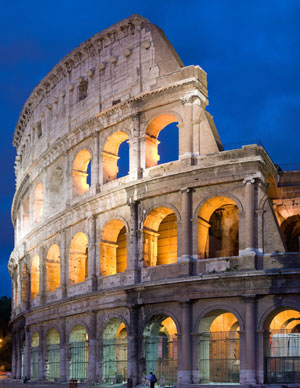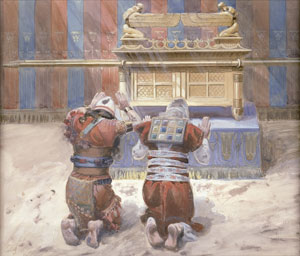
Let All Mortal Flesh Keep Silence
#347 in Glory to God
#5 in The Presbyterian Hymnal
When you're at Camp Carew in the woods along Little Grassy Lake, if you know how to listen, you will hear chatter from all sorts of beasts and birds. They call to their friends They sing romantic songs to attract a partner. They shout about their territorial claims. And sometimes the wild critters make noise just for the joy of making noise.
If you live near my home where there are fewer trees and lots of super-flat farmland planted with corn and soybeans, you'll likely hear different voices: clouds of insects collecting food, coyotes calling to their friends, wind rattling through the corn stalks, birds singing just for the joy of making noise.
If you live in a town or city you probably hear more obviously human noises: car and truck traffic, sirens, machines of all kinds, people calling, people singing, people shouting, and sometimes people making noise just for the joy of making noise.
The sounds in a wildlife refuge may be different from the sounds in a corn field, and the sounds of a town or city are louder than either rural setting. However, these are all the sounds, noises, and evidence of life.
One of my favorite camp songs is "A Place in the Choir." We sang it with the video on Monday. I like it because it teaches that just as all the beasts and birds have a place in God's choir, all of us at camp have a place as well: the little guys who haven't been at an overnight camp before, the veteran senior-high campers, the counselors, the staff. Each of us has a place in the choir. Because of God's love, we all belong.
Why then is there an ancient Christian hymn that orders every living thing—"all mortal flesh"—to be silent? What's so important that we are supposed to halt all the noises, sounds, and voices of life?
This hymn was evidently written at the time when Christians were being torn apart by wild beasts for the entertainment of crowds in the Colosseum. It was probably written between the years 200 and 275 A.D. It appears that this hymn was being sung by the end of the third century in congregations across the Roman Empire and even beyond the eastern border of the Roman Empire in churches closer to modern India. We have ancient copies of this hymn in Greek, Latin, and Syriac. It appears that all of these Christian congregations were singing this hymn as part of "The Great Thanksgiving," what Presbyterians call "the Service of the Lord's Table."
This hymn is one of the oldest known parts of Christian worship. At the beginning of the communion, when the bread and the wine were brought into the worship space and placed on the Lord's Table, the standing congregation would sing together or hear someone sing this hymn. The original words of the hymn are derived Habakkuk 2:20.
The Lord is in his holy temple;
let all the earth keep silence before him!"
This hymn has been sung as a regular part of the communion liturgy in Orthodox Churches and in Eastern-Rite Catholic Churches ever since. Nowadays, in those congregations, it is most commonly sung in either Greek or Russian. The words that most English-speaking Protestants sing were put into poetic form by Gerard Moultrie during the 1800s and were set to music by Ralph Vaughan Williams in 1906.

This hymn is often referred to as a cherubic hymn. The idea behind that name is that as the elements of communion are placed upon the table in front of the congregation. The congregation is to think of angels (cherubs) hovering over and around the bread and wine. Some of you may know that when Moses received instructions to construct the Ark of the Covenant, he was told that the ark was to have on its lid two golden statues of angels with their wings stretched over the ark. The ark was to be kept in the most holy place in the Tabernacle, and later in the Temple in Jerusalem. In this hymn, we are invited to visualize angels guarding the bread and wine for communion as those golden angels guarded the Ark of the Covenant.
We Presbyterians don't get super specific about what happens at the deepest level during the service of the Lord's Table. Most of us don't think that the bread and wine become the literal body and blood of Jesus, but that doesn't mean we minimize what happens in and among us. We believe that we are especially joined to Jesus Christ during the communion, but we don't believe that any words of explanation, even beautiful, poetic words, can comprehend all that this Sacrament accomplishes.
Whether you're approaching the Lord's Table in a beautiful church sanctuary with a well-dressed, dignified congregation or in the woods with a bunch of sweaty, sunburned campers, I encourage you to prepare your hearts for communion with these instructions.
- Pay attention! This is important.
- Approach the Lord's Table with respect, honor, and love.
- Prepare to hear, see, touch, smell, and taste the Good News.
- Listen for this story: the core of our faith.
"For God so loved the world that he gave his only Son, so that everyone who believes in him may not perish but may have eternal life. Indeed, God did not send the Son into the world to condemn the world, but in order that the world might be saved through him."John 3:16-17
The service of the Lord's Table is an awesome re-enactment of the Good News of God's love. As part of our response to this Sacrament, we join with all the beasts and birds and bugs and every created thing everywhere and make a joyful noise of praise to God. Hallelujah! Thanks be to God!
Never forget that God loves you, and so do I.
Stu Smith
The Text
Let all mortal flesh keep silence,
and with fear and trembling stand;
ponder nothing earthly minded,
for with blessing in his hand
Christ our God to earth descendeth,
our full homage to demand.
King of kings, yet born of Mary,
as of old on earth he stood,
Lord of lords, in human vesture,
in the body and the blood,
he will give to all the faithful
his own self for heavenly food.
Rank on rank the host of heaven
spreads its vanguard on the way,
as the Light of light descendeth
from the realms of endless day,
that the pow'rs of hell may vanish
as the shadows clear away.
At his feet the six-winged seraph,
cherubim, with sleepless eye,
veil their faces to the presence,
as with ceaseless voice they cry,
"Alleluia, alleluia,
alleluia, Lord Most High!"
The Hymn
A Version for This Pandemic

From the Rev. Stu Smith: My first visit to Camp Carew was when I came under care of the Presbytery of Southeastern Illinois at a meeting held at camp in 1987. I was ordained and served in Chicago for over 25 years. I received my Doctor of Ministry Degree from McCormick Theological Seminary in 2001 with a concentration in Religious Education. My doctoral thesis was Out of the Church Basement and into Cyberspace: Internet-Based Religious Education for Youth.
In 2014, I moved back to my family farm in Vermilion County. I'm very proud to be associated with Kemmerer Village and Camp Carew and the powerful ministry with young people that they provide.

Camp Carew welcomes campers from all religious traditions.
Camp Carew is a drug- and alcohol-free environment.



